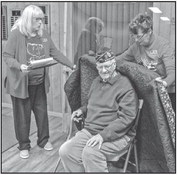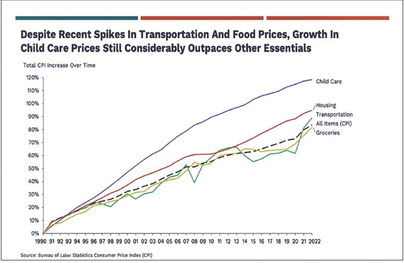Committee advances land, water proposal
The Marathon County Environmental Resources Committee last week Tuesday unanimously approved a 10-year land and water plan without discussion.
The plan is required by the Department of Agriculture, Trade and Consumer Protection and the Department of Natural Resources for routine conservation funding.
The document, one year in the making, documents a worsening problem of agricultural run-off polluting west county surface water, including the Big Eau Pleine Reservoir, against a backdrop of dairy farms quickly exiting the business and the number of highly erodible acres planted with corn and soybeans increasing. The plan calls for asking the state legislature to approve targeted performance standards for Marathon County that would restrict phosphorus loss from six pounds per acre per year, the current state standard, to 2.5 pounds. The plan also calls for a 35-foot tillage buffer around all west county waterways.
In a public hearing, the committee received testimony from 10 individuals, mostly who were members of technical and advisory committees that helped create the plan. The plan was endorsed by environmental groups, including the Big Eau Pleine Citizens Organization (BEPCO) and the River Alliance of Wisconsin, but no testimony was provided by county farm organizations.
Matthew Oehmichen, co-owner of Short Lane Ag Supply, Colby, said he supported the plan’s emphasis on teaching farmers how to improve soil health through no-till agriculture and cover crops without passing new ordinances to further regulate farmers.
He said the county needed to work with farmers on a positive basis. “I am tired of my customers, my friends, being viewed as villains,” he said. “They want to have an economically sound business. They want to leave a legacy of being stewards of the land. They want to make an impact, but they don’t know where to start. They want to access knowledge and guidance. This plan will give them that.”
John Kennedy, vice president of BEPCO, told the committee he supported any improvement in the Big Eau Pleine Reservoir.
“We are on the receiving end of the worst soil and nutrient run-off in the county,” he said. “We are plagued with massive algae blooms, green, stinky water and periodic fish kills.”
He said elimination of spreading cow manure on frozen ground and increasing no-till agriculture would help improve water quality in the reservoir.
Other people who signalled support for the plan were Rachel Whitehair, Wisconsin Rapids, a spokeswoman for UW-Extension; Jon Blume, town of Rib Mountain, a member of a former advisory committee; Wayne Breitenfeldt, Wausau, an advisory committee member; Ben Niffenegger, Wisconsin Valley Improvement Corp. spokesman; Michael Tiboris, River Alliance of Wisconsin; Peter Arnold, town of Frankfort, dairy farmer and advisory committee member; Ben Jehn, Marathon; and spokespeople for the Lake Wausau Association and Pike Lake Sportsmans Club.
With the committee approval, the plan will be sent to the state’s Land and Water Conservation Board for a vote in February. The plan will then be sent to the Marathon County Board of Supervisors for its approval that same month.
On Monday, supervisor Allen Drabek, Edgar, said he supported the plan as setting a direction for county conservation, but not necessarily as a blueprint for future regulation.
“I want to do it on a voluntary basis,” he said. “I want to see if this system works. I hope we are going in the right direction.”
Drabek, however, did not necessarily endorse the plan’s proposal to ask the state legislature for targeted performance standards to reduce phosphorus run-off. “I don’t see that as attainable at the present,” he said.
Drabek said he supports the plan’s 35-foot tillage buffer around county creeks, streams and rivers, but not in non-navigable waters, such as wet areas in cropland fields.
“I like the idea of the buffers,” he said.
The approved plan, however, not only calls for a buffer around creeks, streams and rivers, but also “intermittent streams and existing wetlands.”
Drabek said he was impressed with the use of cover crops during a committee tour at the UW-Marshfield Agricultural Research station last summer.
“I think we are moving in a direction and I would hope people would get behind it,” he said.
Supervisors Jacob Lagenhahn, Marathon, Sara Guild, Weston, and Randy Fifrick, Kronenwetter, were called and asked for comment on the plan. None returned phone calls.




